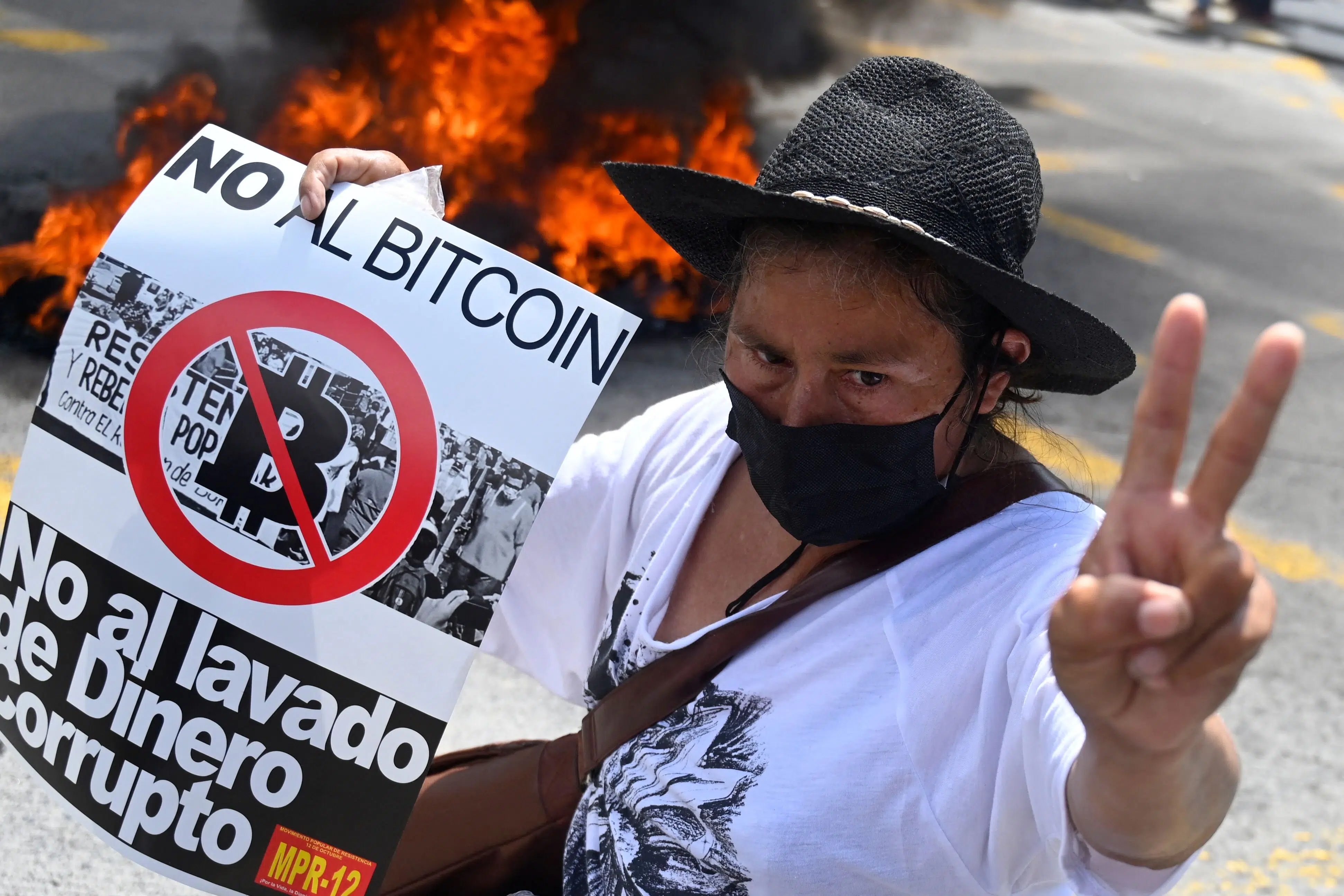On Sunday, a further 21 bitcoins were added to the government’s holdings of the cryptocurrency, which has been legal tender in El Salvador since September 7, 2021.
Marking the fourth anniversary of its adoption, President Nayib Bukele reported the new purchase on his X (formerly Twitter) account: “Buying 21 bitcoins for Bitcoin Day,” he posted.
The president posted a screenshot from the website of the Oficina Nacional del Bitcóin (National Bitcoin Office), the government entity responsible for updating information on new purchases, the number of bitcoins held by the government, and the current value of its holdings.
The information in the image shared by Bukele shows 6,313.18 bitcoins held by the government, worth $701,413,557.
The data shows that at the time of purchase, 12:37 p.m., the 21 bitcoins had a total value of $2,330,475.
According to the timeline visible on the website, El Salvador has consistently purchased one bitcoin per day, in line with the government policy of acquiring one cryptocurrency a day since November 17, 2022.
There have been occasional increases this year, such as seven bitcoins purchased on February 24, five on March 3, and another five on March 9. Today’s purchase marks a substantial jump in the statistics.
The acquisition comes even though the government maintains a $1.4 billion financing arrangement with the International Monetary Fund (IMF) that includes a commitment not to increase its holdings and to mitigate the risks of the crypto-asset, as well as to end its participation in the Chivo Wallet.
In the most recent comprehensive assessment of the first review of the Extended Fund Facility (EFF) arrangement with El Salvador, presented on July 15 by the IMF, the Fund found that the country had complied with the program, including with respect to bitcoin.
“The total amount of bitcoin in the government wallets remains unchanged, which is consistent with the commitments under El Salvador’s program,” said Julie Kozack, the Fund’s spokesperson, when asked about the issue.
“The accumulation of bitcoin by the Fondo de Reserva Estratégica de Bitcóin (Strategic Bitcoin Reserve Fund) is consistent with the program’s conditionality. And increases in the Fondo de Reserva de bitcóin are related to transfers between several government wallets,” she added.
In the latest assessment, the state committed to include all bitcoin transactions in the country’s macroeconomic and fiscal statistics.
At the end of January, shortly before finalizing the agreement, the Asamblea Legislativa (Legislative Assembly) eliminated the requirement to accept bitcoin in commerce and removed its status as “currency” from the wording of the law, but maintained its circulation as “legal tender.”
El Economista: https://www.eleconomista.net/cripto/El-Salvador-compra-21-bitcoins-mas-valorados-en-2330475-20250908-0001.html
El Salvador compra 21 bitcóins más valorados en $2,330,475
21 bitcóins más fueron agregados este domingo a la reserva gubernamental de la criptomoneda, con estatus de “curso legal” desde el 7 de septiembre de 2021 en El Salvador.
En el cuarto aniversario desde que la criptomoneda entró en vigor, el presidente Nayib Bukele reportó la nueva adquisición en su cuenta de X (Twitter): “Comprando 21 bitcóins por el Día del Bitcóin”, publicó.
El mandatario colgó una captura de la página web de la Oficina Nacional del Bitcóin, la entidad de Gobierno encargada de actualizar la información de nuevas compras, la cantidad de bitcóins en posesión gubernamental y a cuánto asciende su valor al cambio actual.
La información, en la imagen difundida por Bukele, revela 6,313.18 bitcoins en propiedad del Gobierno, equivalentes a $701,413,557.
Los datos muestran que al momento de la compra, a las 12:37 del mediodía, los 21 bitcóins tenían un valor total de $2,330,475.
Según la línea de tiempo visible en la página, El Salvador se ha mantenido constante en la compra diaria de un bitcóin, tal como dicta la política gubernamental de adquirir una critptomoneda al día desde el 17 de noviembre de 2022.
Este año han habido aumentos ocasionales, como siete bitcóins comprados el 24 de febrero; cinco el 3 de marzo y otros cinco el 9 de marzo. Con la compra de hoy, se da un salto superlativo en las estadísticas.
La adquisición ocurre pese a que el Gobierno mantiene un financiamiento de $1,400 millones del Fondo Monetario Internacional que incluye, como compromiso, no aumentar las tenencias y mitigar los riesgos del criptoactivo, así como concluir su participación en la billetera Chivo Wallet.
En la última evaluación completa de la primera revisión del Acuerdo de Servicio Ampliado (SAF) con El Salvador, presentada el 15 de julio por el FMI, el Fondo valoró que el país ha cumplido el programa, incluso en lo relativo al bitcóin.
“La cantidad total de bitcóin en las billeteras gubernamentales se mantiene sin cambios, lo cual es coherente con los compromisos del programa de El Salvador”, aseguró Julie Kozack, vocera del organismo, al ser cuestionada sobre el tema.
“La acumulación de bitcóin por parte del Fondo de Reserva Estratégica de Bitcóin es coherente con la condicionalidad del programa. Y los aumentos en el Fondo de Reserva de bitcóin se relacionan con los movimientos en varias billeteras gubernamentales”, agregó.
En la última evaluación el Estado se comprometió a incluir todas las transacciones de bitcóin en las estadísticas macroeconómicas y fiscales del país.
A finales de enero, poco antes de concretar el acuerdo, la Asamblea Legislativa eliminó la obligatoriedad de aceptar el bitcóin en el comercio y borró su estatus de “moneda” en la redacción de la ley, pero mantuvo su circulación como de “curso legal”.
El Economista: https://www.eleconomista.net/cripto/El-Salvador-compra-21-bitcoins-mas-valorados-en-2330475-20250908-0001.html

